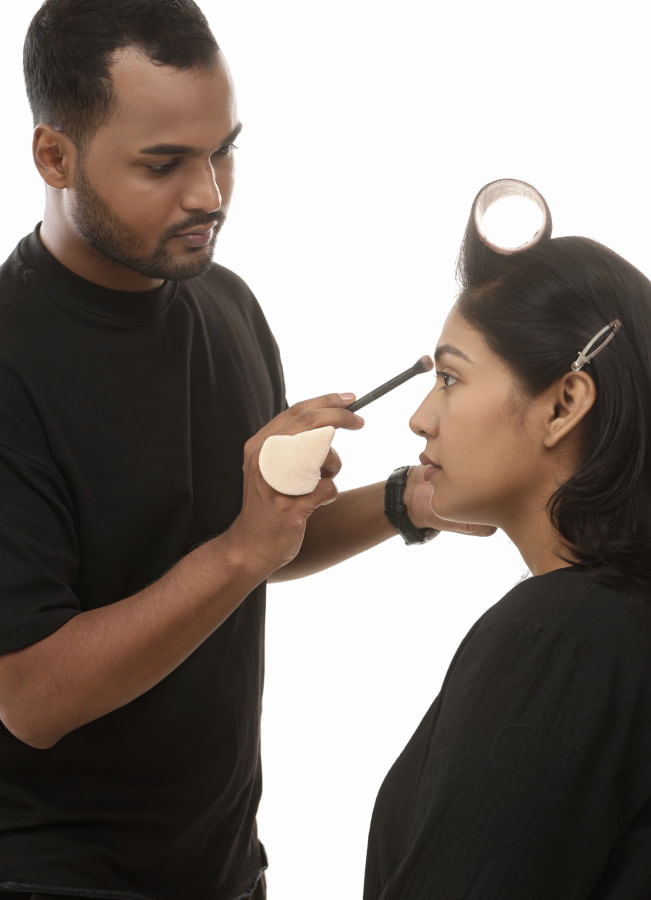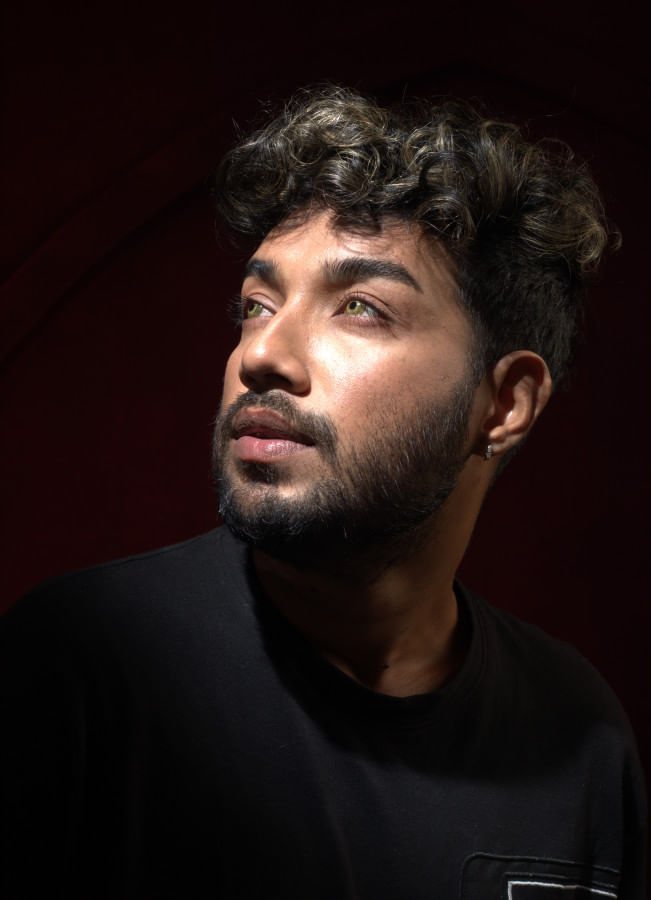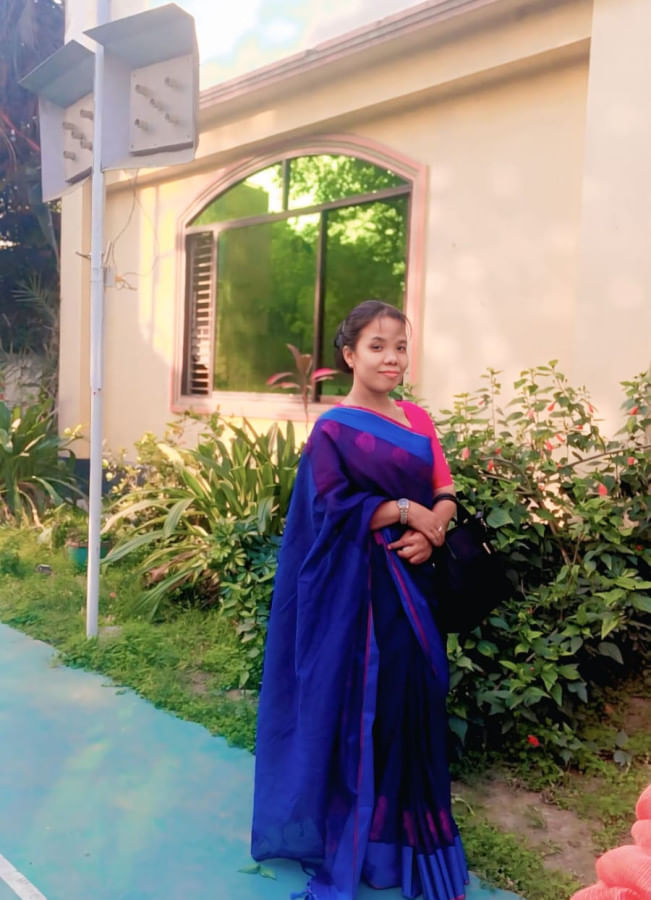Three Bangladeshi makeup artists share real struggles in the industry

Professional makeup in Bangladesh is a business of performance. Behind the glassy bridal smiles and billboard campaigns is a workforce making it all happen. Some of them never expected to be here. Others had to force their way in. Sumon Rahat, Sazzad Hossin Piash, and Probina all work in beauty. They have been questioned, judged, underpaid, overlooked, and overworked. However, they have all stayed, because the brush gives them something else: control, even if it's just for a few hours, over how something or someone turns out.
Getting started
That's one of the first things Rahat remembers hearing when he started taking makeup seriously. As a child, he loved doing hair and makeup for his cousins. He didn't call it "art," but it was just something he knew how to do.
"I came to Dhaka for college," he says. "Some friends from design school saw what I could do. They told me to give it a shot. I started doing small gigs. Then brand shoots. I didn't even notice when it turned into a profession."

Now, he's done campaigns for Taaga, Herstory, and a rotating list of fashion houses. But the job doesn't come with applause from everyone.
"My family still doesn't really accept it," he says. "They want me to get a job. Like, a 'real' one. But my brother and sister-in-law have my back."
Fighting for space
If Rahat slipped in through the side door, Sazzad Hossin Piash kicked it open. "No support. Not from my family. Not from clients. Nothing," he says.
His early days were a mess. Models didn't want him. Clients gave him side-eyes. Even when the work was clean, nobody cared. "They were used to other artists. Familiar ones. I was a guy they didn't know. That was enough reason to treat me like I didn't belong."

Piash didn't flinch. "I told them, look at the global industry. Some of the best makeup artists are men. So why not me?"
Years later, he's worked with almost every brand in Dhaka. Not because the industry suddenly became progressive, but because he refused to go away.
From salon to shoots
Probina doesn't sound like someone who's "new" to the media. But in some ways, she is.
She worked at a well-known beauty parlour for 18 years. She had a schedule, a regular salary and predictable hours. And then she left.

"After COVID-19, I couldn't go back to the old routine," she says. "I wanted to do something on my own. So, I came to the media world."
Unlike Sumon or Piash, her transition was oddly smooth. "People knew me already. No real challenges." But that doesn't mean she's comfortable.
"In salons, the work ends at a fixed time. Here, the work stretches. Shoots go on late. If things ended by early evening, it would make life easier, especially for women."
Still, she shows up. She does the hair. She stays until it's done.
Learning on the job
Makeup artistry in Bangladesh has no school, no map, no rulebook. Most artists — Rahat, Piash, and even Probina — learned by doing, watching YouTube, or shadowing others.
"There are barely any trained, educated makeup artists in fashion," Rahat says. "If more people with education and technique came into the field, the quality would be way better."
Piash nods in agreement. "People come to me and ask to learn. But I'm not a teacher. And most others don't teach properly either. We need proper institutions. Otherwise, people keep learning the hard way."
It's not just about blending techniques or colour theory. It's about knowing what's expected in a shoot, how to handle clients, how to price your work – none of which is covered in YouTube tutorials.
Glamorous on the outside, tough on the inside
The work looks glamorous. But only from far away.
"You work like a machine during peak season," Rahat says. "Then suddenly, no work. That's just how it is."
The jobs come in waves — mostly around wedding season or Eid campaigns. During dry spells, artists scramble to stay afloat.
But the inconsistency doesn't mean the job is low-paying. "I earn more than my friends in corporate jobs," Rahat adds. "And I have freedom. That matters to me."
For Probina, the issue isn't pay, but rather it's time. "Back-to-back shoots, working from morning to night. If things wrapped up earlier, it would make a big difference. Especially for women."
Why they stay
Ask them what keeps them here, and none of them say "passion." Not because they don't love the work, but because love isn't always enough.
"I like it. It pays. I'm good at it," Piash says. That's it. No need to over-explain.
Rahat's take is more practical. "Society always talks. Whether you do well or fail, someone will have something to say. So do the work you want to do. That's all."
Probina's advice? "Have courage. That's all you need. You never know where things might lead."
This is not a story about transformation. It's not about rising from nothing to fame. It's about staying in a system that does not make space for you, and making your own anyway. At the end of the day, they are working every day under pressure and judgment, yet with no safety net. And they do it well.
Photo: Courtesy

 For all latest news, follow The Daily Star's Google News channel.
For all latest news, follow The Daily Star's Google News channel. 








Comments